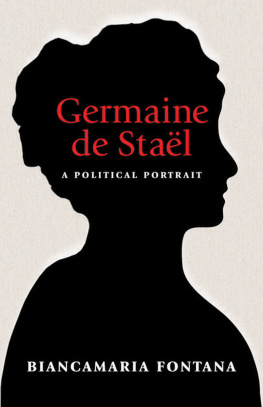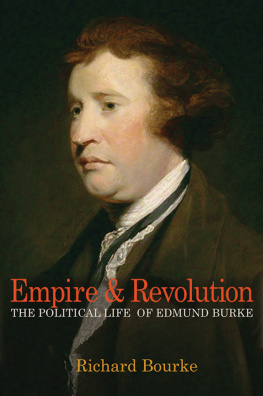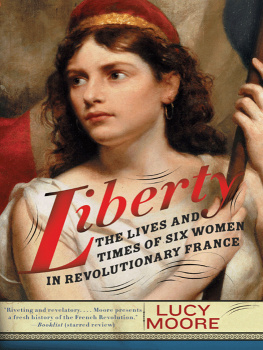
Germaine de Stal

Germaine de Stal

A POLITICAL PORTRAIT
Biancamaria Fontana
PRINCETON UNIVERSITY PRESS
PRINCETON AND OXFORD
Copyright 2016 by Princeton University Press
Published by Princeton University Press, 41 William Street, Princeton, New Jersey 08540
In the United Kingdom: Princeton University Press, 6 Oxford Street, Woodstock, Oxfordshire OX20 1TR
press.princeton.edu
All Rights Reserved
Library of Congress Cataloging-in-Publication Data
Names: Fontana, Biancamaria, author.
Title: Germaine de Stal : a political portrait / Biancamaria Fontana.
Description: Princeton : Princeton University Press, 2016. | Includes bibliographical references and index.
Identifiers: LCCN 2015028539 | ISBN 9780691169040
(hardback : acid-free paper)
Subjects: LCSH:, Stal Madame de (Anne-Louise-Germaine), 1766-1817. | Stal, Madame de (Anne-Louise-Germaine), 1766-1817Political and social views. | Women intellectualsFranceBiography. | IntellectualsFranceBiography. | Women political scientistsFranceBiography. | Women authors, French18th centuryBiography. | Authors, French18th centuryBiography. | FranceHistoryRevolution, 1789-1799. | FrancePolitics and government1789-1815. | BISAC: HISTORY / Europe / France. | POLITICAL SCIENCE / History & Theory. | PHILOSOPHY / Political.
Classification: LCC DC146.S7 F58 2016 | DDC 944.04092dc23
LC record available at http://lccn.loc.gov/2015028539
British Library Cataloging-in-Publication Data is available
This book has been composed in Palatino
Printed on acid-free paper.
Printed in the United States of America
1 3 5 7 9 10 8 6 4 2
Contents

Acknowledgments

THIS BOOK has been too long in the making, and through the years several friends and colleagues have offered me help and advice, or simply listened patiently as I rambled on about Germaine de Stal and her pressing political problems. I wish to thank Bronislaw Baczko for his encouragement at the beginning of my research, John Dunn and Bernard Manin for their continuing support, Ruth Scurr and Sylvana Tomaselli for their helpful comments on the text. I am grateful to Thierry Bornand, Antoine Chollet, Francesca Dal Degan, Ran Halvi, the late Istvan Hont, Caroline Humphrey, Bla Kapossy, Silvia Kimmeier, Rahel Kunz, Patrizia Lombardo, Michael Sonenscher, Gareth Stedman Jones, and David Womersley. I wish to thank Lonard Burnand (for the Institut Benjamin Constant) and Stphanie Genand (for the Socit des tudes staliennes); finally Benjamin Tate at Princeton University Press for adopting the project and Lauren Lepow for her skillful editing.
This book is dedicated to my fellow researchers and conversationalists at the Centre Walras Pareto of the University of Lausanne.
B. F.
Lausanne, July 2015
Germaine de Stal

INTRODUCTION

A Passion for Politics
LAVENIR NA POINT DE PRCURSEURS
Two centuries after her death in 1817, Anne-Louise-Germaine Necker de Stal-Holstein is by no means a forgotten or even a neglected author. Indeed, her personal history is such a good one that her contemporaries, and later her biographers, have narrated it over and over again, now in gossipy, now in admiring tones, insisting on the most salientdramatic, scandalous, adventurousanecdotes. It is the story of the bankers daughter who became one of Europes best-connected intellectuals, or, if you prefer, that of an exceptionally talented woman, born to great wealth and privilege, who achieved a degree of public influence to which not even her social advantages would normally have entitled her. At times of great political turmoil, when the lives of so many around her were wrecked or destroyed, she succeeded in carving out an independent path for herself and in making her views heard, first by the powerful men around her, and later by the European public at large.
The story has a very distinguished cast of kings, queens, and emperors, famous generals, politicians, and ministers, as well as great writers and intellectuals. It has elegant settings, with a good selection of htels particuliers, castles, and royal palaces in Paris, Geneva, Versailles, and, further away, in London, Vienna, Stockholm, and Saint Petersburg. It offers such political intrigue, tangled love affairs, and spectacular reversals of fortune as the
So why return to it once again? The main reason is that the reputation Stal enjoys today as a novelist and literary critic, as the archetypal independent writer battling against despotism, is very high; on the other hand, the dimension of her life she cared most about, politicsthe theory and practice of the exercise of powerhas been set aside by historians as being, if not exactly irrelevant, possibly exhausted as a topic of research and a source of inspiration. Significantly, the bulk of her political writings, some of which were originally published in England as well as in France, are no longer available in English translation.
This decline of interest rests essentially on two grounds. The first is the belief that Stals political activities were always dictated by personal and emotional motives, and therefore should be treated as a feature of her biography, a dimension in a broader life narrative. Even those historians who are prepared to credit her with genuine political vision tend to fall back on psychological stereotypes as the explanation of her actions: her devotion to her father, her ambitions for her husband or for her lovers, her loyalty to her friends. Naturally personal elements are always relevant in political life: family and professional relations, local affinities or chance encounters, individual sympathies or dislikesall may play a role. Indeed, now that women have gained access to high office, marriage and love affairs have once again come to the forefront of public attention. But as a rule these private and relational factors are regarded as contingent, rather than essential, to political alliances and strategies, while in Stals case they are offered as primary causes.
The second reason is the widespread view that Stals contribution to political theory was on the whole unoriginal, as it was part of an established liberal tradition, and a mere complement
Clearly gender has been a crucial factor in determining both how Stal experienced politics, and the manner in which her contemporaries and posterity have judged her. Because she was a woman, she could act only by proxy, delegating her political initiatives to some male agent. This dependence she seems to have taken in her stride: if in her writings she denounced the vulnerable position of women in society, she never actually complained, publicly or privately, about being unable to stand for office, and, unlike a few of her contemporaries, she did not advocate womens suffrage. Again, because she was a woman, her political enemies added to the usual personal attacks a great many fanciful sexual allegations. Conscious of that, although she lived as freely as circumstances allowed her, she was always very careful to preserve appearances and to protect herself from scandal (she even avoided divorce, though in postrevolutionary France this had become possible and, to some extent, socially acceptable). Concern for respectability also dictated the destruction of an important part of her private papers, in particular the bulk of the correspondence with Benjamin Constant, though in this case the responsibility rests not with her but with her immediate family.
Next page









